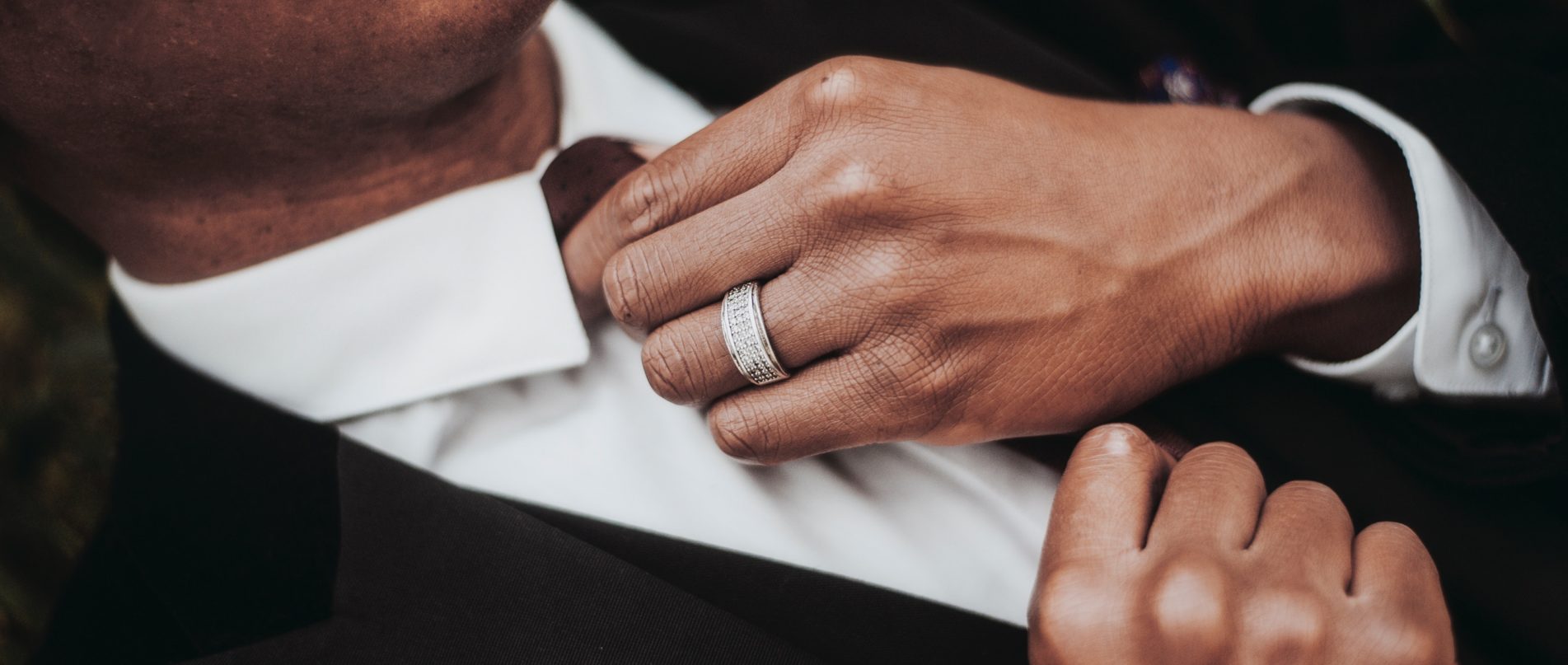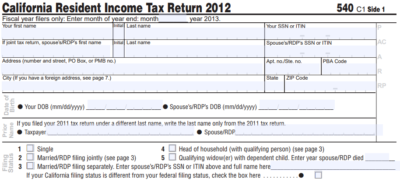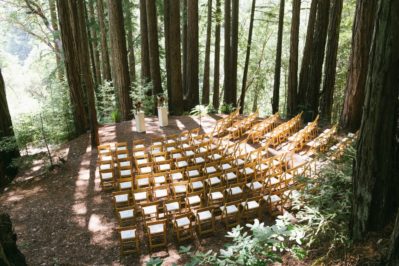
Prompt Images
3 Words, 2-ish {Marriages}, 1 Spouse, 0 {Weddings}: The Holy States of American Matrimony, Part 2
In Part 1, Scott revealed how after he moved to California, the idea of marriage was an intellectual problem, a riddle to solve. That is, until his boyfriend proposed to him—and then it was suddenly a Real Thing instead of a abstract concept.
We were in Las Vegas.
In the middle of the day on my 30th birthday, surrounded by flowers in the Bellagio Casino’s garden, the man I love gathered together all our past memories, bundled in all our future potential, and distilled the mix into one single moment. One single question. Time may not have actually stood still 5 years ago when he asked me to be with him forever, but I’ll argue it definitely crystallized a bit. It’s a moment I’ll carry with me forever; for someone like me, who barely remembers what I did at work last week, that’s damn impressive.

“It’s pollen allergies making me cry, not a marriage proposal.”
With the three words “Yes, I will,” we were something new. I’d done my homework, so I knew we couldn’t be married. I knew we could still register as “domestic partners,” and receive all the rights and protections under California law as any married couple. I also knew we were as much, if not more, in love than any married couple.
There was a triumph to our love as well, borne of conquering my darker past of loneliness, isolation, and worthlessness. Everyone comes to understand themselves and love in a different way as they mature, of course. But to grow up as a gay man meant I needed to do so quietly: I had no role models to internalize, no peers to mimic, and no language to even verbalize a difference I could feel but couldn’t quite pin down. All I knew is that I was different somehow—and to be different is at times one of the cruelest things one can be. At that point, with three short words, on July 28, 2012, I was the same in love as anyone else. [1]
Juliet’s “rose by any other name” definitely does not smell as sweet.
With those three words, a powerful line was drawn between the “before” and the “after.” Because words have power. Words matter. Ask the diplomat who walks a tightrope between war and peace based on how things are said and when. Ask the lawyers who, with a clause here and a comma there, create contracts worth billions of dollars. Ask the playground bully who needn’t land a punch to cause lasting harm to his peers.
Words are the ultimate in human magic: a means by which we alter reality solely by willing it into existence. Ask the writer bleeding out onto the page. Ask the teacher shaping thought. Ask the parents of a newborn, who often just wish they knew why their child was crying and what to do to help.

The pen truly is mightier than the sword. While swords can only cut, words can do this and more.
So I couldn’t tell anyone that my boyfriend proposed to me. We weren’t going to get married (and a proposal is what precedes a marriage). We weren’t fiancés. We weren’t betrothed. I knew what we were but could only say what we weren’t. And when all the words you have at your disposal suggest by default that you’re straight, you grow a little tired of correcting people who ask if the ring was exactly what she wanted. (For the record: yes, I liked the ring.)
It wasn’t just in word that our relationship was different. It was also in deed. Ever the practical person, I didn’t see why we shouldn’t make our relationship official immediately. I had been terribly worried about the fact that my now-more-than-boyfriend didn’t have health insurance, and once we were officially together he could be covered under my plan through work.
Domestic partnership is as easy as 1, 2.
There is no wedding planner needed to become domestic partners in California. As Wikipedia drily notes, “Domestic partner registration is an uncomplicated process—more simple and less costly than entering into a marriage.” We downloaded a form, signed it as Partner 1 and Partner 2, got it notarized, and then tried to find a stamp since nothing is ever done through the mail anymore.
Roughly a week or so later, we got a certificate announcing we were registered as domestic partners. I turned to my new partner and announced, “OK, our date is August 6th.” The date wasn’t when we signed the form, and it wasn’t when we got it in the mailbox. It was the date that the certificate was authorized, which happened of course before it was mailed.t
As it turns out we’d actually been #marriednotmarried for a couple days without even knowing it.
Our taxes that year were, in a word, complicated. I’ve done our taxes by hand every year since we moved in together, but 2012 was the first tax year that we headed to H&R Block. When I initially pulled all the numbers together, I was so confused by the amount of money it looked like we would be getting back that I needed a professional second opinion. (As it turns out, I was right. Three cheers for community property law.)

The last line is what you check when different governments view your relationship in different ways.
By the summer of 2013, more people had spied the ring on my left hand and asked, “Oh! How long have you been married?” I still was not fully comfortable with my answer; it felt like secretly stealing the meaning out of a word I didn’t feel I had the right to use. Eventually the date would escape my lips with only a small remnant of internal cognitive dissonance.
Sometimes, with friends or close acquaintances, I would reply, “Well, technically…” Hearing their replies of shock and indignation was simultaneously affirming and dispiriting. It’s nice to know that people felt my love had value, but lonely to realize they never knew until that point that I couldn’t get married to the man I loved.
Until finally, I could.
After Proposition 8 was enacted in 2008, lawsuits began wending their way through California’s legal system. The amendment was found unconstitutional, but the ruling was appealed. And in the end, after a tortuous path through the state, Hollingsworth v. Perry was in front of the Supreme Court of the United States of America. It was late June 2013, and all eyes were on the justices to see what would come of the verdict.
In the arcane world of constitutional law, standing is a core principle. It essentially mandates that people cannot argue for redress in the courts unless they can show that harm was done to them by some legal action.
The Supreme Court deftly threaded the needle on the topic of marriage equality by ruling only that the people asking to restore the marriage ban (those opposing same-sex marriage) were never harmed when the ban was declared unconstitutional in California. The court didn’t take a stance on the issue of marriage equality itself, but instead affirmed what the lower court had decided by virtue of a technical point. The issue had been decided; they had nothing new to add.

“Whatever the guy before me did, I’m cool with” is an argument that judges can get away with while most employees can’t.
The outcome wasn’t the slam dunk in favor of nationwide marriage equality that some were predicting. It was merely indicating that in California, the earlier court finding was correct. It did nothing for my gay and lesbian friends in other states. It gave no additional protections. It made no promises. It was, in legal parlance, a narrow ruling.
It was enough.
The high court announced the decision of another case that day, United States v. Windsor. Together, these decisions meant that I could marry my partner in California and have that marriage be recognized at the federal level. At the time, our domestic partnership was limited to recognition in California. The tax benefits of marriage were straightforward, and we saw no reason to delay. So I took a day off of work in the middle of the week, one year after the date on our domestic partnership certificate. [2] We got actually and truly married in a simple ceremony with but a courthouse officiant to witness our union.
I’ve always felt awed by the power of ritual. It should come as no surprise that I burst into tears of joy as I heard us speaking the simple yet powerful words of a marriage vow. Words that, through nothing but the sheer virtue of our saying them, caused our reality to change and unfold anew. The power of that vow—a symbol, an oath, a promise of love regardless of circumstance—has carried me through the tough times in our lives.
It’s also been a source of surprisingly sharp bitterness.
A vivid example might have never happened but for my aforementioned tax diligence. My eye for attention meant that in 2014 I identified that my pay was being taxed incorrectly for the health care benefits my husband had on my plan. It was wearying enough having to call and explain tax law to the faceless payroll administrators at one of the 20 largest employers in the United States; it was even more demeaning when they referred to my marriage as a “situation” with an audible pause long enough to reveal they were trying to find the right word.
Perhaps most stinging is that I never had a wedding.
The power of words exists only so far as others hear them, and while I hope I would never approach Bridezilla levels of self-centeredness I yearn to be able to ask my friends and family to hear such a symbol of my love. In what seems to me like a time-travel paradox, each of our official unions negated the traditional reasons to celebrate the other with the people closest to us. Our domestic partnership wasn’t yet the real marriage we’d end up needing to get fully recognized; our marriage ceremony seemed cheapened by a necessity to upgrade what we’d already agreed to.
Neither were the occasion to summon everyone across the country.
My mental to-do list has one item at the bottom that will eventually get crossed off. Our eventual commitment ceremony may take place on a beach, or in the forests of Northern California, or perhaps surrounded by flowers as was my shining crystal moment in time. The guest list might grow slightly from where it is now. But the date is as of yet TBD.

I can think of worse places to fill with love.
Even as a groom, I’m still a bridesmaid.
Exactly two years after same-sex marriage was restored to California, SCOTUS struck down bans in every state in their landmark decision in Obergefell v. Hodges. Yet same-sex marriage is still a pale imitation to the bride of “traditional marriage.” As I write this, the Supreme Court is considering arguments in a case on whether or not businesses can deny service to customers based on their religious beliefs. Many, myself included, feel this the ruling could open a dangerous world of discrimination, done in the name of the divine and sanctioned by the hand of the government.
There is another case currently making its way through the Texas legal system on whether or not the city of Houston should be offering benefits to same-sex couples. The argument there is that the right to marry is merely that; there is no guarantee to any equality in treatment or benefits and that it is perfectly legal to grant employment benefits to some married people and not others.
America is a curious experiment in government: a collection of regions bound together by nothing but words, with state and federal governments clashing over authority on issues of all types. I dread the possibility of going back to a time that the state of matrimony depends on your state of residence.
While I moved to California almost completely for love, there was the tiniest bit of fear. Though I may need to learn love’s lessons day by day, I know for sure I don’t want fear to be any part of how I love. So I’ll continue to keep a wary eye on the courts, even knowing that their verdicts can never diminish nor amplify the love I feel. Whether the fight for complete equality is long or brief, I won’t have to struggle through it by myself.
The love my husband and I share has been twice-affirmed and sealed: We’re just two times as strong as any other couple.
[1] The turbulent details of my adolescence fade with every passing day, but I would not wish my particular experience of grappling with homosexuality on my worst enemy. To anyone who thinks that being gay is a choice that people make: I have three very, very different words for you.
[2] I had a 1-on-1 meeting with my boss a couple days after my husband and I were married. When she asked if I did anything exciting on my day off, my sheepish and quiet reply of “Well… we got married…” got a reaction that wouldn’t have been out of place on a sitcom.



